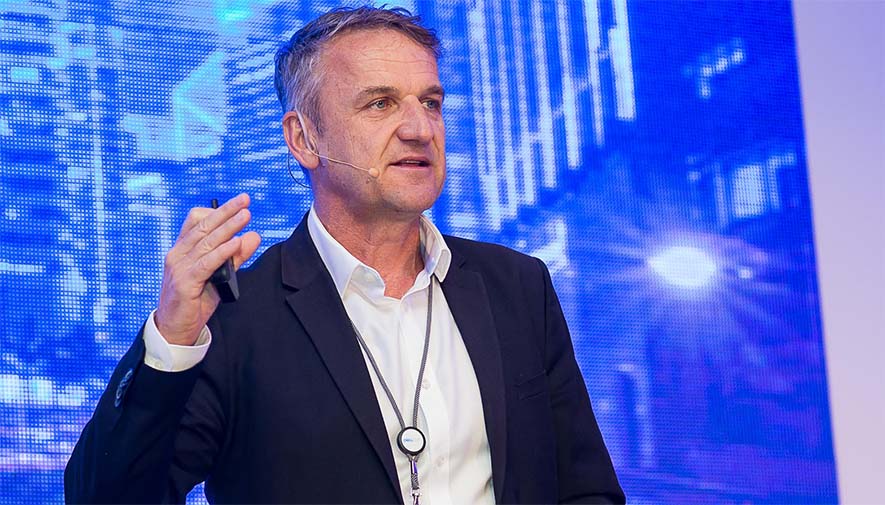Kathy Gibson is at Dell EMC Partner Summit in Cape Town – Technology is an important enabler of workforce transformation, but the change actually begins with the user.
Today, one technology cannot support the whole workforce, says Chris Buchanan, client solutions director: southern Africa at Dell EMC.
What’s critical is enabling users to be productive, he adds. Although most organisations are still focused on saving money, those that aim for productivity are reporting better returns.
“We need to open up discussions about using the device that you give to users, to ensure it is a motivational tool and boosts productivity.”
Dell decided to do the experiment itself, and transformed the way it is equipping its workers.
The results have been impressive, Buchanan says. Workers are more motivated, and Dell EMC demonstrates that it uses its own technology to empower its staff.
“The way we work is transforming,” he adds. “Today, work happens anytime and anywhere, and the old ways are no longer relevant.”
This needs to be supported and enabled by technology.
“More work is happening outside the office, so we are seeing that in-office cubicles have become smaller – in fact, there is 59% less office space than 10 years go.”
Today, 52% of people are equally productive at work or at home. And employees spend an average of two hours working in public places.
Productivity is increased by technology, and 50% of employees check their work emails or take work calls after business hours – so employers are getting hours more work.
“So it requires a differentiated approach,” Buchanan says.
Organisations need to first of all address top IT concerns of security, reliability and manageability. It makes sense to provide devices that are desired by end users, since this increases usability.
And solutions should be tailored to suit the way different employees work.
For instance, all-in-ones can increase user density in the office, and make desk-centric employees more productive.
“Adding a second monitor to a desk-based employee’s desk increases productivity by 19% – that’s an extra day per week,” Buchanan says.
The on-the-go professional, on the other hand, needs to stay connected with a long battery life.
Corridor warriors are in the office, but not necessarily at their desks. They need to be mobile and flexible with the ability to collaborate.
For remote workers, connectivity is vital, but they also need support as well as the ability to be self-sufficient.
“We need to stop looking at devices, and rather considering how we can make users more productive,” Buchanan adds. “It should be about workforce transformation rather than workplace transformation.”


